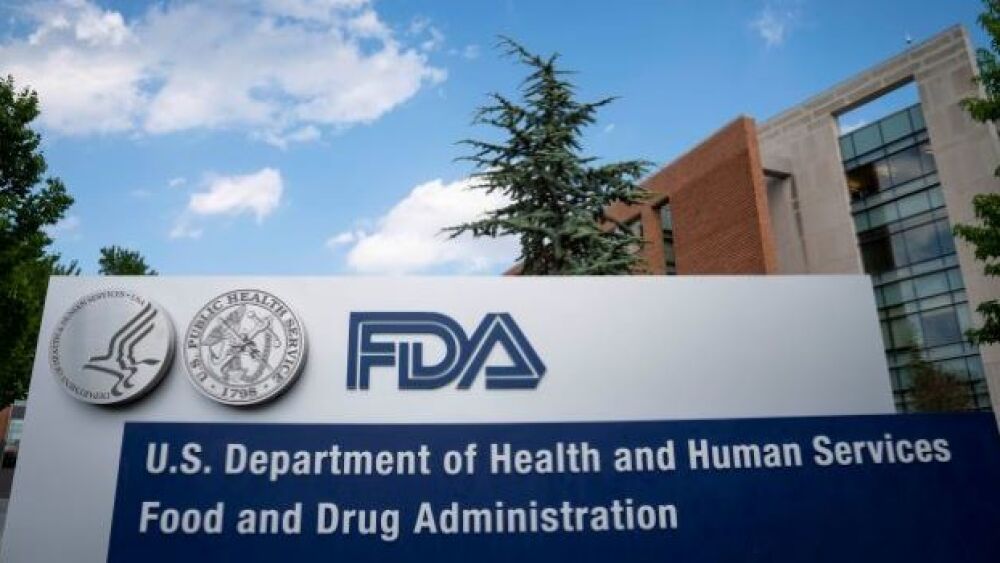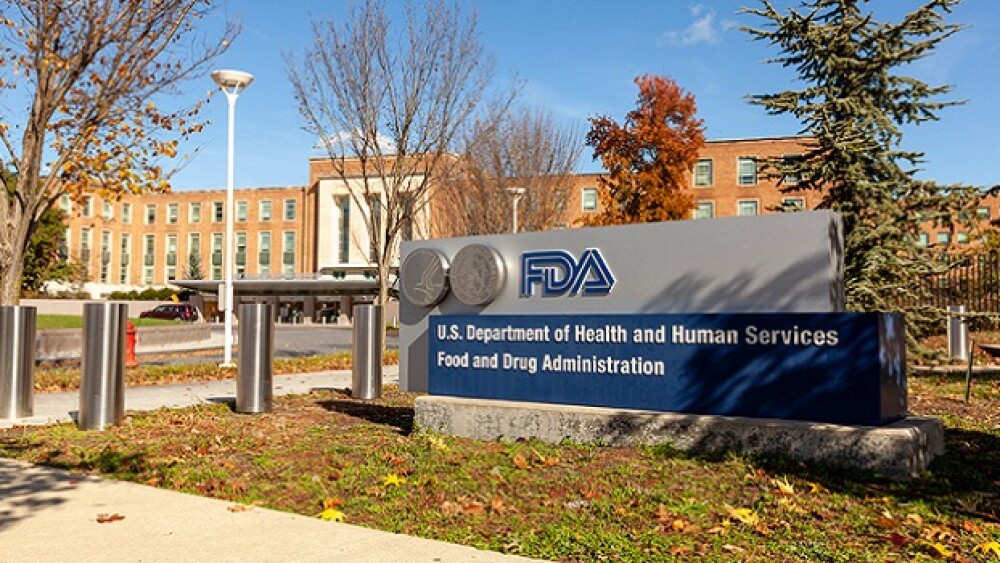Shares of Spectrum Pharmaceuticals plunged 33% upon the release of briefing documents for an FDA advisory meeting regarding poziotinib
Courtesy of Sarah Silbiger/Getty Images
In a split decision, the FDA’s Oncologic Drugs Advisory Committee voted against recommending Spectrum Pharmaceuticals’ poziotinib, an oral tyrosine kinase inhibitor (TKI) being considered for the treatment of non-small cell lung cancer (NSCLC).
According to the advisory panel, the 9 to 4 decision was based on “marginal efficacy, high level of toxicities and lack of dose optimization.” The FDA is expected to make its final decision regarding the drug by Nov. 24.
This comes shortly after Spectrum shares plunged 33% upon the release of briefing documents for the meeting regarding poziotinib.
Investors weren’t happy with the documents, which questioned the efficacy and safety of the drug.
Spectrum has submitted an NDA for poziotinib to treat locally advanced or metastatic NSCLC harboring HER2 exon 20 insertion mutations. The application is seeking accelerated approval, which is typically based on effects on a surrogate or intermediate clinical endpoint as opposed to specific clinical benefits.
If approved under the accelerated approval pathway, the company is then required to conduct post-market studies to demonstrate clinical benefit or the approval can be rescinded.
In the documents, the FDA specifically cited three areas of concern:
1.) Low overall response rate (ORR) with minimal duration of response (DOR), including an ORR of 28% with a median DOR of 5.1 months.
2.) A poor safety profile at the dosage Spectrum is recommending. In the trials, the FDA notes, 57% of patients required decreased doses and 85% experienced grade 3-4 adverse events. The regulator does note, “The rate of interruptions and dose reductions may be mitigated in patients receiving alternative dosages.”
3.) “Inadequate dosage optimization throughout development program.” The documents note Spectrum proposed two different doses for accelerated approval, 16mg once per day and a dosage of 8mg twice a day for the confirmatory trial. “Confirmation of benefit will be significantly delayed given that confirmatory trial has not begun enrolling patients,” the FDA wrote.
Poziotinib was evaluated as a monotherapy in the ZENITH20 trial. The primary efficacy data for the NDA is from patients in Cohort 2 of the trial, who have HER2 exon 20 insertion mutations and have received at least one previous systemic therapy. They received the recommended dosage of 16mg.
In reference to the 28% ORR, the documents state, “If granted accelerated approval, this would be the least effective targeted therapy for lung cancer approved to date.”
The FDA also points out that Spectrum has not launched the confirmatory trial, so “uncertainties regarding the benefit of this therapy may take 4-5 years to resolve.”
The proposed confirmatory trial, SPI-POZ-301, would compare two 8mg doses of poziotinib to single-agent docetaxel, with a primary efficacy outcome measure of progression-free survival. The FDA documents indicate initial data from the trial, which has not begun, aren’t expected until at least 2026.
At least partly at issue is whether poziotinib will provide equal or better DOR for this indication than existing drugs, such as Enhertu, Keytruda, Opdivo and Tecentriq, all of which have been approved for NSCLC in the second-line setting.
Enhertu is specifically indicated for NSCLC with certain mutations in the HER2 gene. The other drugs are all checkpoint inhibitors against PD-(L)1.
The advisory committee will also review Oncopeptides’ Pepaxto in relapsed or refractory multiple myeloma and Secura’s Copiktra for the third-line treatment of adults with relapsed or refractory chronic lymphocytic leukemia or small lymphocytic lymphoma.





